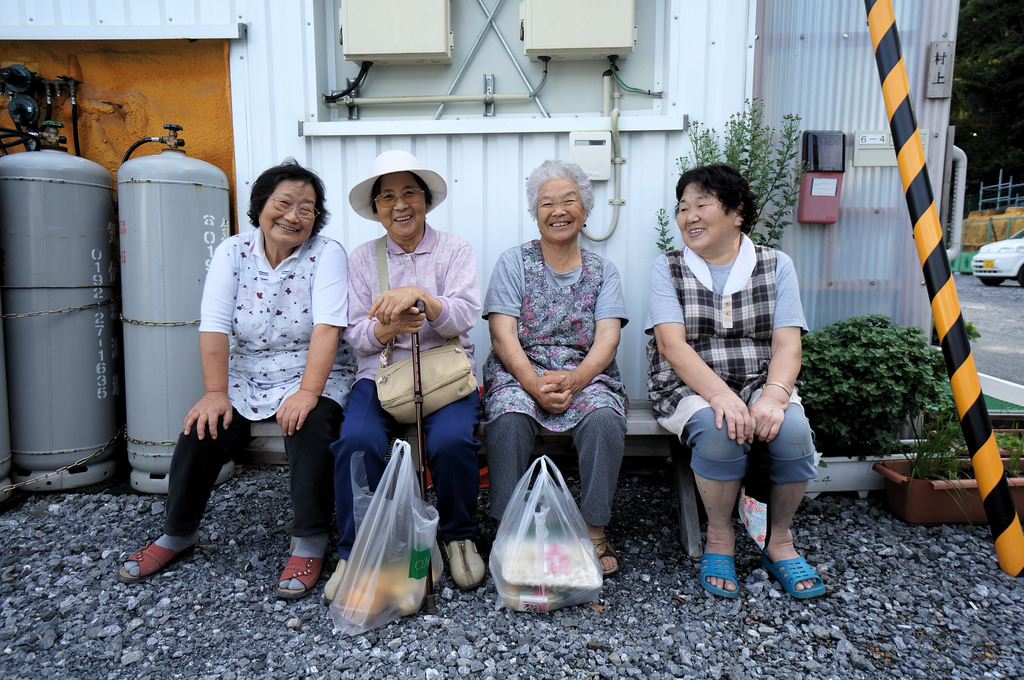Diapers may be Japan’s most pressing issue of 2019. The Japanese diaper industry is booming, so what is the problem? Japan sells more adult diapers than child ones! This disturbing revelation sits at the epicenter of an aging crisis in Japan. With the longest life expectancies in the world, an average of eighty-three years old, Japan’s elderly population continues to grow rapidly. Over twenty-eight percent of their population qualifies as senior-citizens, topping second-place Italy at twenty-three percent.
If Japan saw these growth trends among the youth in addition to the elderly, this would not be nearly the problem that it has become today. Unfortunately, Japanese fertility rates currently sit near 1.44 births per woman, fallen from over 2.1 in the 1970s, and far below replacement levels. The severe aging imbalance has real short-term and long-term consequences for the Japanese economy. Shinzo Abe and the Japanese government have already begun implementing policies to combat the worst consequences of the aging-crisis, but solving the underlying problem of too few children remains largely a mystery.
Most headlines point to a sharply reduced sex-drive among the Japanese youth as the explanation; however, most countries with similar fertility rates to Japan experience higher rates of sexual activity among their youths. Thus, more sex isn’t necessarily the key to boosting Japan’s fertility rates needs. The real reasons likely lie in a mix of complex social, cultural, and economic phenomena discouraging Japanese youth from having children.
Japan’s intense pressures surrounding sexual intimacy may hamper their youth’s ability to meet potential partners and explore relationships, both casual and serious. Attitudes against free sexual expression have contributed to what has become known as celibacy syndrome, that dating and sex are seen as increasingly unnecessary to Japanese in their teens and twenties. In a highly publicized incident, after it was revealed that a member of a Japanese pop group let her boyfriend sleep over, “she was so ashamed that she shaved all her hair off and issued a tearful public apology – looking like a poor, plucked eaglet.” Living in this kind of society, with modesty so highly valued, Japanese youth can hardly be blamed from turning away from sexual intimacy. In an interview with the Guardian, a Japanese relationship and sex counselor tried to explain the mindset of the youth: “Both men and women say to me they don’t see the point of love. They don’t believe it can lead anywhere … Relationships have become too hard.”
Economic upheaval adds an interesting twist to this anti-love equation. Over the last twenty to thirty years, Japan has seen much of its labor force transition from regular employment, full-time jobs with standard benefits and clear upward mobility, to irregular work, often part-time jobs without a long-term vision. This phenomena has affected Japanese men particularly strongly and has profound implications on prospects for marriage: “Men who don’t have regular jobs are not considered desirable marriage partners; even if a couple wants to get married, and both have irregular jobs, their parents will likely oppose it.” There is a twenty-six percent difference in marriage rates among 30-year-old men with and without full-time jobs.
Even men who are fortunate enough to land regular jobs see prospects for dating and marriage as bleaker than in the past. The leader of a Japanese labor union activist group in Japan explains that “knowing that people in their 20s and 30s are desperate to get regular jobs, companies hire lots of young people and force them to work long hours for little to no overtime pay.” According to a Japanese government report in 2016, approximately one in four Japanese companies require at least 80 hours of overtime each month. A culture of overworking is so potent in Japan that they have a term, karoshi, which means ‘death by overwork.’ With little choice but to accept these demands, there is far less time and effort that these men can devote to seeking a partner and starting a family. The lack of men who are capable of leading families is particularly troubling for Japanese women in major cities. In one of many maneuvers to resolve this issue, the government has sponsored matchmaking events to pair interested men and women.
Women, too, typically face a stark choice between family and work life. Japanese women often drop out of the labor force after having children, a process known as the M-curve, in which the female labor force participation rate curve dips meaningfully throughout a woman’s childbearing years. Shinzo Abe’s “womenomics” plan, providing support for women throughout the child-rearing process in multiple capacities, has shown signs of success, but Japan still experiences the M-curve more severely than most similar countries. Without two working parents, however, Japanese families easily run into financial hardships. Raising a child proves especially expensive in Japan, over two-and-a-half times more so than in the United States. There are simply no good options for raising a family in Japan.
Japan’s dangerously low fertility rate arises from a complex set of historical social and cultural norms as well as more recent economic developments that have destabilized traditional economic standards. The popular notion of a decreased sex drive among Japanese youth is the result of these deeper patterns, not the true cause of the decreased fertility rate. Government intervention, providing more financial support to new families, could help alleviate financial pains, although undermining long-held cultural norms will be far more challenging. As Japan feels the weight of its large elderly population and shrinking youth, these problems will become far more pressing in its society. Some argue that immigration may provide an outlet to bring more young people into the country, although Japan maintains a long track record of low immigration numbers and is only beginning to experiment with more robust immigration policies under Abe. Strong citizen activism and the government’s support will be necessary to begin to see lasting change. Hopefully, someday, baby diapers will reign supreme once again.
Photo: “Women in Japan“
